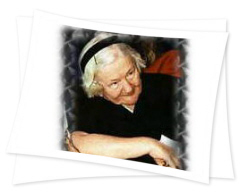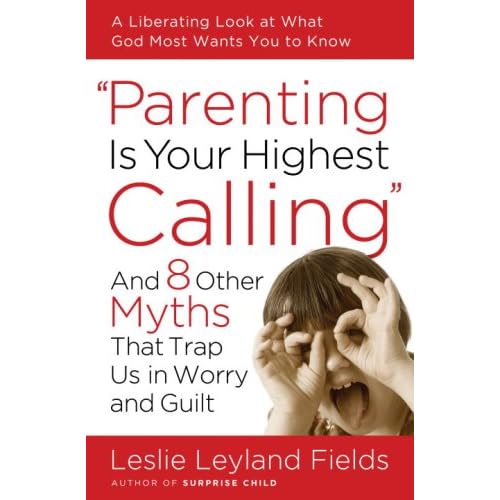I ran across this article when checking out the Barnabas Group a few years ago, a nonprofit organization that has researched church conflict and works with church staff to promote healthy church environments. The author, John Setser, lives here in Appleton, WI. He’s one of the few who “get it” and don’t buy into the belief that church staff are underlings or that they’re there to be used to promote personal agendas. Of course, I don’t believe all pastors fit into that category, for I’ve met some amazing men who walk in the Spirit and love others as Christ does, regardless of who they are.
If I were overly cynical, I would have no desire to continue my commitment to work in ministry. I do still desire to serve in a church, to glorify God, to see the world evangelized and Christians taught and edified. John Setser’s ministry to church staff helped me keep my perspective. When I said I’m not “overly cynical,” I am admitting there is a bit of cynicism, but just enough to keep my eyes open – enough to hopefully prevent future mistakes in judgement when it comes to choosing what ministry I’ll tie myself to. I included the entire article because it’s worth the read. Hopefully it will comfort some, answering questions that have lurked at the back of their minds over the years, and give a better perspective to others who might be personally caught up in the abuse.
When Senior Pastors Abuse Church Staff
By John Setser
Trust Injuries and Mistreatment by Senior Pastors
My friend served a large church for many years as a lay leader. He decided to embrace ministry as a vocation. With the pastor’s encouragement, he took Bible courses, quit his job, and joined the church staff as a full-time assistant pastor.
Soon after he joined the staff, the senior pastor asked him to deliver the closing remarks following a guest speaker’s sermon. My friend had never done this. He assumed the senior pastor would assist if needed. The pastor, however, did not assist and the closing was a disaster. The senior pastor rebuked him publically.
My friend slunk away to an empty room and sat alone in stunned silence. Soon another staff member found him. Apparently, the senior pastor had a history of setting up associates to fail so he could render forceful on-the-spot correction.
A leader my friend loved and respected traumatized him. This incident caused him to be watchful; he sustained what I call a trust injury.
A trust injury occurs when a person of authority or relational significance harms a person under his care. The trust injury experienced by my friend was his mistreatment by his senior pastor. A trust injury is an encroachment, offense, or violation that causes an associate to experience a psycho-emotional wound. A wounded associate feels damaged by the one he trusted to represent and extend God’s love.
A growing number of staff associates endure mistreatment at the hands of senior pastors. Senior pastor mistreatment does not occur when he corrects mistakes, enforces policy, or fires a staff employee due to cutbacks or incompetence. Senior pastor mistreatment occurs when senior pastors knowingly or unknowingly abuse power, break boundaries, and shatter trust.
Abused associates leave their places of ministry confused, despondent, and discouraged. They wonder how such abuse can happen in a place that is expected to be a model Christ’s love and healing power. They need answers, and they need healing. Providing answers will help them recover.
Wounding Agents
A senior pastor may not plan to be a wounding agent. A called, competent, and qualified senior pastor, however, can become a wounding agent — sometimes without realizing it. Senior pastors who wound others are not born; they are made.
Toxic Churches
A toxic church often mistreats staff associates. A toxic church exists when doing becomes more important than being. People in a toxic church believe their service to God is keeping church systems functioning. They believe God’s blessing results in bigger budgets for bigger buildings to accommodate more people. Looking successful replaces love as the key ingredient.
A healing church speaks of Christ residing in people, not in buildings or programs. This kind of church encourages participants to be genuine, not appearance-oriented or performance-driven. When churches emphasize loving, caring, and being, staff associates can enjoy being part of a healing organization.
Bill was in a church leadership program that promised mentoring by the senior pastor, Bible studies, and a closer walk with Jesus. Once on the job, however, the senior pastor expected him to facilitate the church’s promotional agenda. He was working for a corporate-minded leader intent on developing a growth-oriented organization. He ended his internship and stopped attending church. He loved God, but no longer viewed church as a safe place.
Staff members looking to make things better can make problems worse. Senior pastors can brand associates who offer too many suggestions or seek to change the program as rebellious and disloyal. Senior pastors routinely discipline or terminate them. If they report their mistreatment, district officials often do not act on these reports because they tend to support incumbent pastors.
Survival Skills
So, what do you do if the dynamics of a toxic church are wounding you or your senior pastor is mistreating you? The answer: Exit as soon as possible. In reality, leaving is not easy because most staff associates serve out of loyalty to God and the ministry. They will not easily walk away from an appointment. Also, victimized individuals tend to deny, minimize, and rationalize their mistreatment. They cannot believe that something bad is happening to them, or they convince themselves that the situation will not get worse. But it will get worse.
One associate contacted me saying, “I do not know how this could have happened. My husband and I were involved for over 6 years. Between the pastor, the committee, and their actions, I do not see how we can ever return. There is a gaping hole in my heart, and I feel devastated.”
If you feel you must remain in an abusive environment, here are five survival skills that can help you cope.
- Do not give place to abusive treatment. Resist cruelty, coercion, threat, and inequity.
- Recognize wounding senior pastors for who they are. Senior pastors are often insecure and hurting and use acting-out strategies to get what they want.
- Be alert to being set up. Do not let senior pastors manipulate you into compliance.
- Seek out a lateral support system. If you are being mistreated, you are probably not alone. Share your experiences with others. Wounding senior pastors can sometimes be stopped if a unified group confronts them.
- Watch your heart. Do not give into self-pity, rage, or a judgmental attitude. Jesus calls us to pray and look to Him.
Trust Injuries and Their Effects
The words wounding and senior pastor were never meant to be used together. To deal with the situation, associates often absorb mistreatment and accept blame rather than believe their senior pastor is unjust. This response can generate spiritual and psychological confusion. It distorts an individual’s perception of God and lowers one’s self-esteem. Wounded associates are often unable to integrate or make sense of the pain-filled reality causing them to feel guilty and at fault. They often feel unable to move forward.
A wounded associate writes, “I am having a hard time finding a way to put everything into perspective. I just keep getting this flood of emotions, and I do not know what to do or whom to turn to for help. Maybe I somehow equate this experience to past abuse; maybe not. I just know that it really hurts when it is a pastor you trusted and thought loved you as Christ loved the Church.”
A woman confided, “We are both healing from an abusive ministry. Our senior pastor was very controlling and dictatorial. We are a year out of this ministry and still feeling the effects. My husband was the associate pastor, and the senior pastor treated him like a hireling. I am going through an identity crisis; it took me 6 months to identify that is what it was. The Lord also showed me that if I was struggling with issues, how much more would my husband be struggling with the same issues, but at deeper levels. I wept for him.”
Another person writes, “In September we ended a relationship with an abusive church. We are still experiencing pain and emotions. My wife and I were both on staff and have been with this ministry for years. We have seen the hurt and pain that come when a man of God seeks to build his own kingdom instead of building God’s.”
Healing the Hurts
If you are a wounded associate, consider the following principles you can draw on to promote your healing:
- Know you are not going crazy. With the emotional extremes you are feeling, it is important to know the pain is real and it is not your fault.
- Talk and pray. Find safe, trusted people with whom you can talk to and pray.
- Be honest. Do not be afraid to honestly vent your feelings.
- Use a support system. Never meet with a wounding agent alone. Always take someone with you.
- Look to Jesus as your Healer. Jesus will use what you have experienced for good. Trust Him to provide process and encounter experiences to expedite your recovery.
Process experiences
A process experience is a Holy Spirit-directed word, meeting, or circumstance that helps wounded associates gain perspective. You may think process experiences are chance happenings, but they are planned and directed by God who seeks to grant perspective to those in need. A Scripture, internal voice, or a casual conversation often provides perspective. Process experiences help associates sort out their pain and give them a clearer perspective of what happened.
Frank, a former associate, told how his senior pastor mistreated and wrongfully terminated him. His story is an example of a process experience. Weeks after his termination, Frank could not move beyond wondering why the pastor treated him so abusively. One evening Frank met a man who was a long-time friend of the senior pastor. The man told him that years earlier a trusted church member had hurt this pastor. As a result, from time to time, the pastor experienced periods of depression marked by fits of paranoia. This often motivated him to make regrettable decisions. Frank thanked God for being able to talk to this man because, in the process, he found perspective.
Encounter experiences
Encounter experiences are similar to process experiences, but their purpose is to bring healing. Bill and Phyllis experienced such an encounter. They served as a youth pastor team in a large church. The couple’s ministry was fruitful. They were expecting a child, and with the senior pastor’s support they bought their first house. Without warning, he fired them. He blamed them for doing things they did not do and accused them of saying things they did not say. People began to circulate rumors that the pastor wanted to fill the position with someone else, but believed he had to discredit the couple to make the change seem like their fault. They left town heartbroken and confused.
Bill and Phyllis’ encounter experience came when two church elders sought them out and offered an apology on behalf of the church. They told Bill and Phyllis that the senior pastor’s actions were wrongly motivated. They pledged to restore the couple’s good name and promised to give prospective employers a glowing recommendation. The four individuals wept, hugged, and prayed together. Afterward Bill and Phyllis expressed thanks to God for His healing touch.
The Issue of Forgiveness
When my senior leader wounded me, I was so hurt the last thing I wanted to do was forgive him. Well-meaning people told me I needed to forgive, but I was conflicted.
Theological issues aside, the problem for me was twofold. First, my anger made me feel guilty. Whether I had reason to feel this way was irrelevant. Second, I wanted to extend grace if for no other reason than to move beyond my pain. I asked God if there was anything good in my heart that I could in truth give away. At that moment, the only good I could extend was not slashing his tires or dumping trash on his lawn.
After I made this transaction before God, a surprising thing happened: I felt peace. The moment I extended the good I had in my heart, I began to breathe freely again.In not slashing his tires or throwing trash on his lawn, I was in fact extending a form of forgiveness.
A proper understanding of forgiveness has its root in Hebrews 12:14, a passage that encourages us to live in peace with all people. Living in peace in no way obligates wounded Christians to forget or have good feelings. But, it does involve truthfully extending whatever good is in one’s heart. A person can only give what is in his possession. Individuals who extend forgiveness are free to be at peace in a situation knowing they truly tried to follow God.
Perspective, a Needed Ingredient
Resolving and recovering from situations of abuse within the church is always difficult. Senior pastors are often at fault for the pain and suffering they perpetrate on staff ministers. God is on the side of wounded associates as they cry out for help. However, we cannot overstate the need for perspective.
We also need to understand that all have sinned and fall short of God’s glory. At some point we all have acted unjustly and must accept the responsibility to repent. When we gain perspective, we also acknowledge that senior pastors, often unknowingly, wound because they themselves have been wounded. Powerful congregants and church boards can wound senior pastors through manipulation and intimidation. The potential for such wounding increases exponentially if finances or attendance begin to decrease.
Senior pastors and the associates they wound both need to feel and experience God’s unconditional love. Love is the fertile ground from which faith and good works grow. It is in the arms of Jesus that wounding agents and wounded associates alike can find hope and healing.
Binding Up the Wounds
Jesus will soon return for the bride He loves. Until that time, embracing God’s directive to love Him with all of our heart, soul, mind, and strength can heal the wounds of senior pastors and staff associates alike. Let us love and serve in such a way that He will be able to commend us for being good and faithful servants.
http://enrichmentjournal.ag.org/200902/200902_042_broken_spirits.cfm
John Setser, Ph.D., Appleton, Wisconsin, is a church consultant and founder of Barnabas Group, a nonprofit organization committed to resolving conflict and promoting a healthy church workplace. Setser can be contacted at johnsetser@hotmail.com. Visit his Web site, www.shatteredtrust.com, for a listing of Barnabas Group services and ministry offerings.
Published in the spring 2009 issue of Enrichment. Used with permission.
















